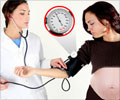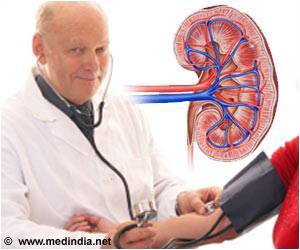
‘Being overweight or obese during childhood can put women at a higher risk of developing hypertensive disorders during pregnancy.’
Tweet it Now
The findings build on two well-known observations: women with overweight or obesity are at greater risks of hypertensive disorders in pregnancy than women with normal-weight, and excess adiposity (severe overweight or obesity) takes time to develop. Hypertensive disorders in pregnancy are of particular concern since they can endanger the lives of both the mother and her unborn child.For these analyses, the authors used data on 49,615 girls from the Copenhagen School Health Records Register, born from 1930-1996 (and aged 23-90 years now). Annual height and weight measurements were collected from ages 7-13 years.
The research team defined overweight and obesity at ages 7 and 13 years according to the International Obesity Task Force body mass index cut offs (BMI ?17.69 kg/m2 at age 7 years and 22.49 kg/m2 at age 13 years). Using national registers, they identified girls who later became pregnant and those who developed gestational hypertension or preeclampsia from 1978-2017. Women were included in the study if they were in the age-range of 18-45 years and gave birth to a single baby in their first recorded birth.
After estimating the odds ratios (OR) for the association between childhood BMI and hypertensive disorders during pregnancy, using a statistical technique called multivariate logistic regression, the team found that compared to girls with normal-weight, those with overweight at ages 7 or 13 years were significantly more likely to develop gestational hypertension (increased risk: 1.9 and 2.0 times, respectively) and preeclampsia (increased risk 1.6 and 2.3 times, respectively) when adjusted for maternal age at delivery and maternal birth cohort (all results were statistically significant).
When looking at patterns of change in BMI, girls with overweight at 13 years only or at both 7 and 13 years were around twice as likely to develop gestational hypertension and preeclampsia during pregnancy than girls with normal-weight at both ages.
Advertisement
Source-Eurekalert















